A bewitching town drenched in yellow
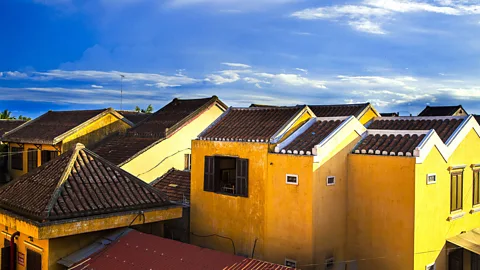
What’s most striking on entering the city’s Ancient Town is that many of the buildings are bathed in a distinctive golden hue.
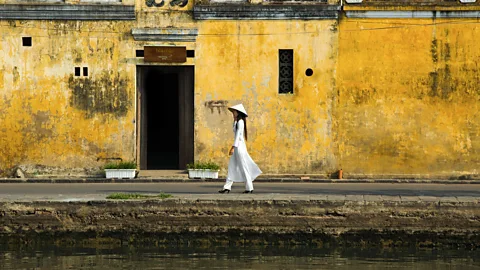
In Hoi An in central Vietnam, grand French colonial houses mingle among Japanese temples and Chinese wooden trader’s houses. But the fusion of cultures and architectural styles are not the only remarkable elements here; what’s most striking on entering the city’s Ancient Town is that many of the buildings are bathed in a distinctive golden-yellow hue. (Credit: Réhahn)
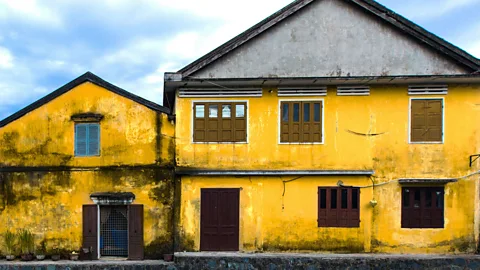
There are many theories as to why so many buildings here are painted yellow. Some believe that it symbolizes royalty; others believe it to be for practical reasons, as a light colour yellow absorbs less heat – ideal for Vietnam’s humid, tropical climate. Whatever the case, this shade is highly revered in Vietnamese culture, symbolizing luck, pride, wealth and respect. Most Vietnamese homes have an altar dedicated to departed ancestors, which is decorated in yellow ornaments and flowers. (Credit: Réhahn)

Hoi An has nearly 1,000 ancient buildings, of which 844 are on the Unesco list for their historical value. The astonishing cityscape has drawn travellers and artists for centuries. (Credit: Réhahn)
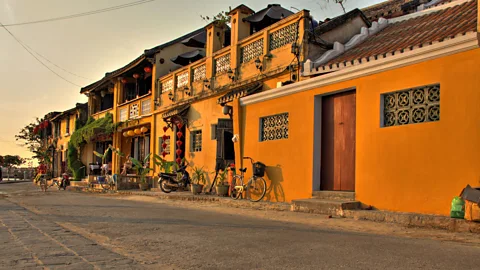
Hoi An is like an open-air studio. The light and the yellow walls make the perfect backdrop for any subject, continually surprising and inspiring me.” – Réhahn, photographer
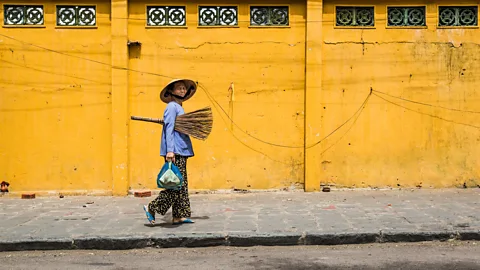
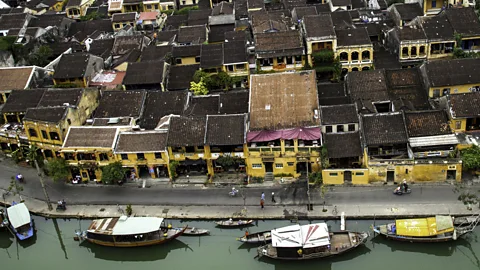
Because of its protected status, the Ancient Town has very strict building regulations in place, meaning it has retained its traditional wooden architecture of the 17th and 18th Centuries, with the original street plans, canals, bridges – and the ubiquitous yellow walls – remaining intact. Not much has changed here in hundreds of years. (Credit: Réhahn)
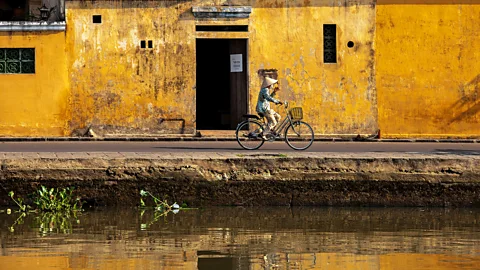
The buildings in the Ancient Town are uniquely designed in that the entrance is from the street, while the back of the building opens to the Thu Bon River, making it easy for loading and off-loading goods that are transported by boat. (Credit: Réhahn)
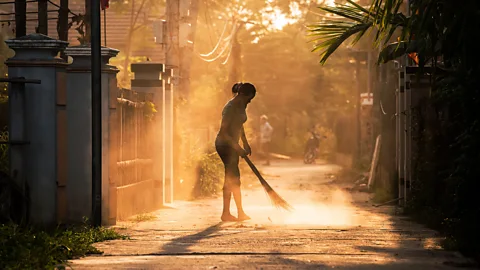
Sunrise in Hoi An brings its own charms, with the early sun bouncing off the walls bathing the city in a bewitching tapestry of light. In the quiet dawning of the new day, one of the few noises you’ll hear is the sweeping of brooms as people clean their homes and streets. (Credit: Réhahn)
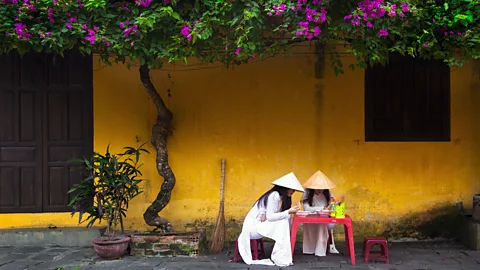
Since the Vietnamese mostly never have breakfast at home, you’ll likely find locals eating at the food stalls around the Japanese bridge in Nguyen Thai Hoc and Tran Phu streets. Get up early enough and you’ll see children fuelling up on their way to class; schoolgirls, as seen here, always wear the traditional ao dai. (Credit: Réhahn)
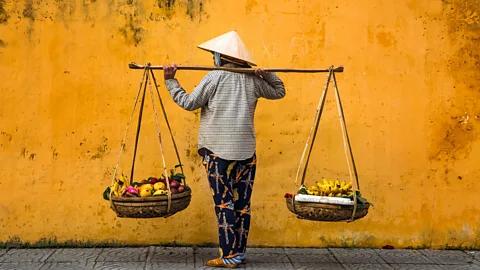
Even though times have changed, many things here have stood the test of time, like these vendors carrying fruit and vegetables in baskets from the market back to their stalls. Each day, hundreds of tourists will pass through the streets of the Ancient Town. (Credit: Réhahn)
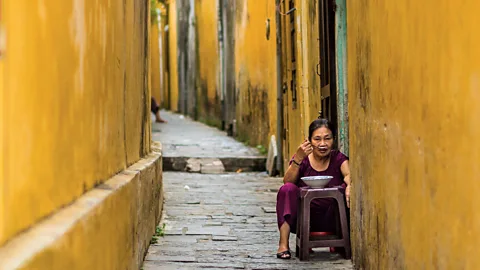
You can spend years living in Hoi An and still discover new alleyways branching off the narrow streets. They’re always pristinely kept, and many are painted in golden hues. The quirky, tucked-away shops are full of surprises, from tailors showing off their creations to lantern craft shops and intimate restaurants. (Credit: Réhahn)
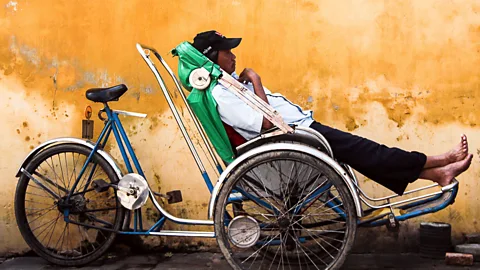
In these ever-changing times, it’s refreshing to find a place where life seems to stay the same. Since this is one of the few places in Vietnam that is protected from development, hopefully, this ancient city will keep its unique, sunny charm forever. (Credit: Réhahn)
